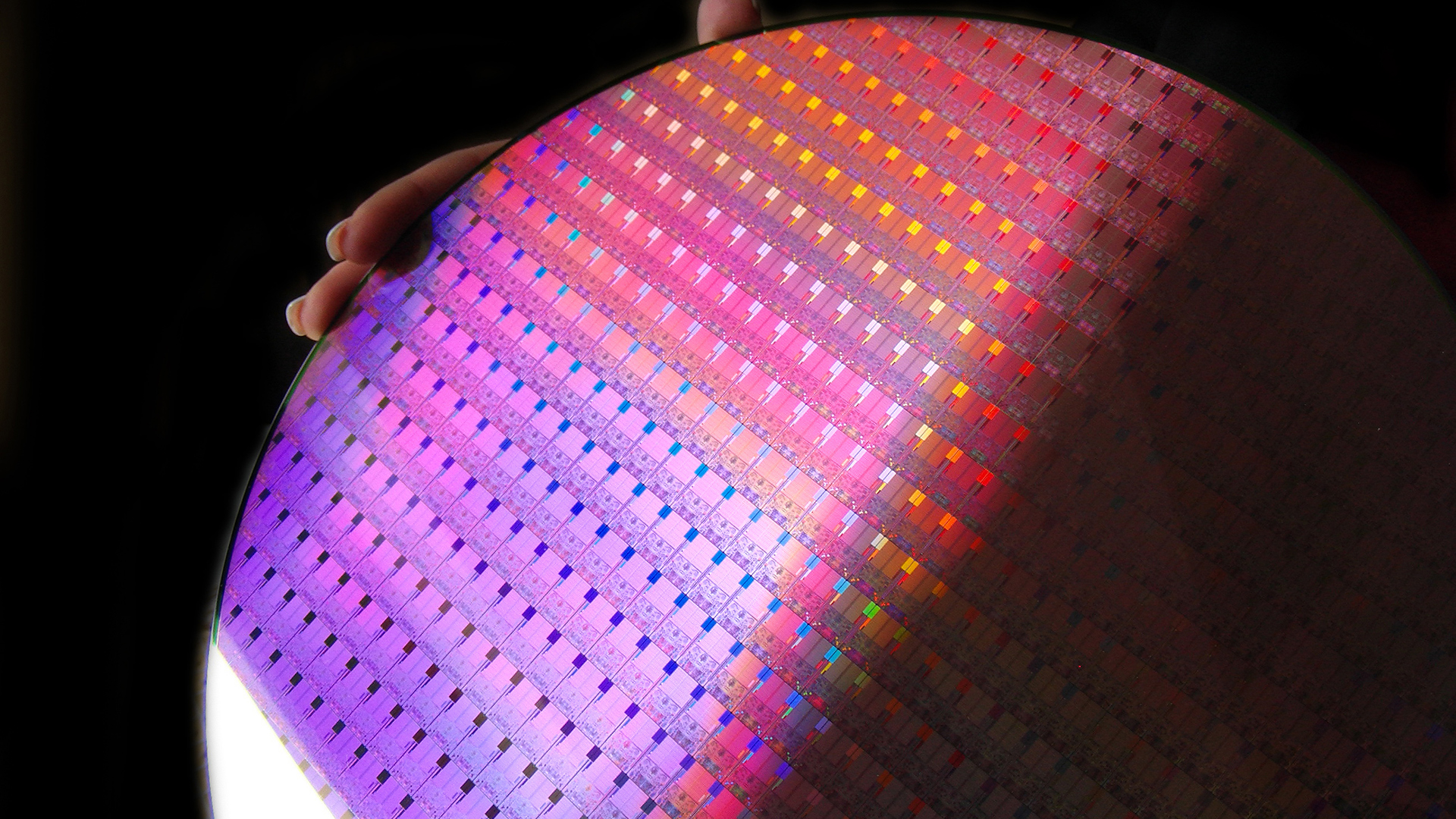Intel 7nm CPU delay sees shares slump as it falls further behind AMD Ryzen
Stock price plummets following news of Intel 7nm delay

Following Intel’s recent announcement of a major production technology delay on its new 7nm CPU chip technology, many investors have decided to sell off their company shares.
Intel’s stock dropped from $61.15 on July 20 to $50.59 on July 24 after the company announced that it would postpone introduction of its first 7nm CPUs made using its 7nm fabrication technology by 6 to 12 months.
At least 225.58 million Intel shares have already changed hands as the company’s capitalization lost billions, dropping from $260.87 billion to $215.82 billion in just a few days.
- Best Intel Processors: the best CPUs from Team Blue
- Best AMD Processors: the best CPUs from Ryzing Team
- Best workstations: Powerful PCs for professionals
The delay is caused by flaw(s) found in Intel’s 7nm manufacturing process that led to yield degradation. The world’s largest chipmaker said that it had found the root cause of the yield degradation, but did not specify it in a conversation with analysts and investors. It will now take Intel some time to fix the flaw(s) and then re-qualify process technology.
Intel 7nm roadmap
“The company's 7nm-based CPU product timing is shifting approximately six months relative to prior expectations,” Intel CEO Bob Swan said in the company’s recent earnings call. “The primary driver is the yield of Intel's 7nm process, which based on recent data, is now trending approximately 12 months behind the company's internal target.”
Intel reassured investors and observers that no matter what happens to its process technology, it would continue to launch new products on predictable cadences to enable its clients to release new products. In a bid to ensure that Intel has the right silicon for its customers, the company will now consider and use multiple methods, including die disaggregation, iterative process technology improvements, architectural enhancements, and using external foundries for production.
“We are mitigating the impact of the process delay on our product schedules by leveraging improvements in design methodology such as die disaggregation and advanced packaging,” Swan added.
Are you a pro? Subscribe to our newsletter
Sign up to the TechRadar Pro newsletter to get all the top news, opinion, features and guidance your business needs to succeed!
Intel still plans to launch its 'Tiger Lake' CPUs for laptops featuring integrated Xe Graphics, and are made using the company’s 10nm+ process technology later this quarter. Next year the company will offer codenamed Alder Lake CPUs for desktops and notebooks.
Meanwhile, Intel’s upcoming Xeon Scalable CPUs codenamed Ice Lake-SP will start to ramp up in late 2020, whereas its successor codenamed Sapphire Rapids will follow on in the second half of 2021.
“We now expect to see initial production shipments of our first Intel-based 7nm product, a client CPU in late 2022 or early 2023," said Swan.
"We are also focused on maintaining an annual cadence of significant product improvements independent of our process roadmap, including the holiday refresh window of 2022. In addition, we expect to see initial production shipments of our first Intel-based 7-nanometer data center CPU design in the first half of 2023."
According to an unconfirmed report from Taiwan-based Commercial Times, Intel has placed an order for 180,000 wafers produced using a 6nm node at Taiwan Semiconductor Manufacturing Co. next year. TSMC’s 6nm is not the foundry’s leading-edge node as the company recently started high-volume manufacturing (HVM) using its 5nm fabrication process. If the report turns out to be accurate, this will mean that Intel could not get access to TSMC’s leading-edge production lines that are fully booked by existing customers, including alpha clients like Apple.
- We’ve picked out all the best processors
Anton Shilov is the News Editor at AnandTech, Inc. For more than four years, he has been writing for magazines and websites such as AnandTech, TechRadar, Tom's Guide, Kit Guru, EE Times, Tech & Learning, EE Times Asia, Design & Reuse.